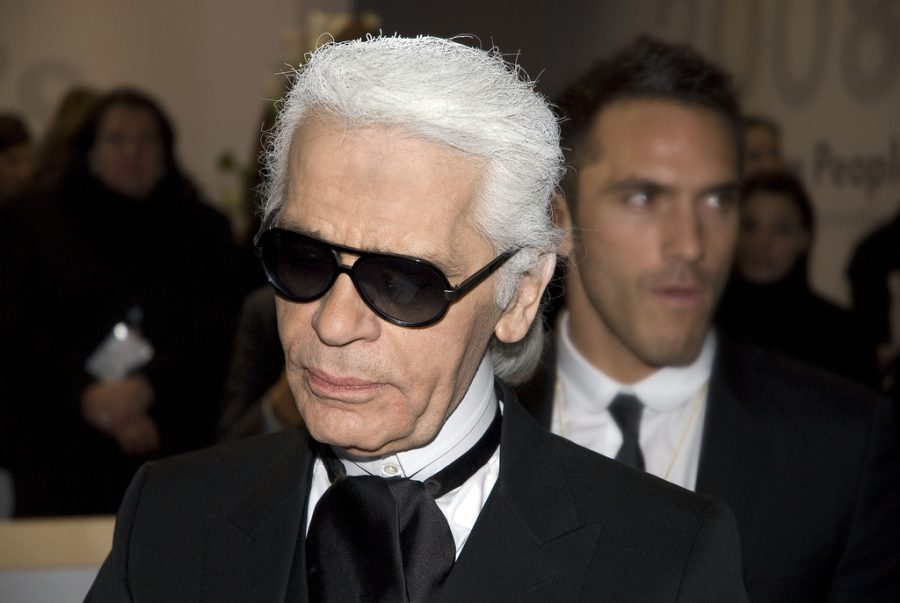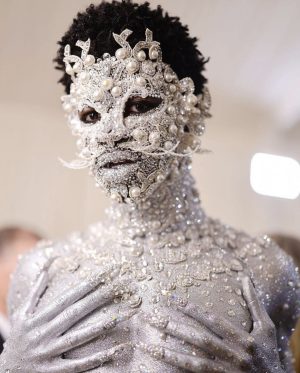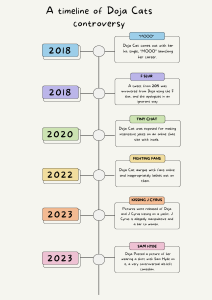Karl Lagerfeld is not worth celebrating at this year’s Met Gala
An image of Karl Lagerfeld from 2008.
May 2, 2023
The first Monday of May (May 1 this year) was the esteemed Met Gala Monday, and celebrities are lining up with either $50,000 for a ticket or $300,000 for a table. While this is a huge night for fashion and pop culture every year, this year’s theme has already drawn much controversy.
The theme for this year is “Karl Lagerfeld: A Line of Beauty,” and goes alongside the Metropolitan Museum of Art’s exhibition of the same name. Lagerfeld was a force in the fashion industry, having designed for houses like Chanel, Patou, Balmain, Chloé, Fendi, and his own eponymous brand. Lagerfeld died in 2019 at age 85, so the dress code was simply “in honor of Karl.”
Lagerfeld’s career may have been massively influential, but to honor his life at such a public event is simply disgraceful.
Throughout his career as an illustrious designer, Lagerfeld has encouraged and defended the practice of hiring women who are incredibly skinny. He often voiced his dislike for women larger than sizes 0 or 2.
One of his most infamous instances of fatphobia was when, in 2009, he told German magazine Focus “No one wants to see curvy women.” This is, in fact, not true and unhealthy.
Unfortunately, this is just the tip of the iceberg. In 2012, he made headlines after calling Adele “A little too fat,” and then “apologized” by saying he was referring to Lana Del Rey, the Vogue cover girl at the time.
The following year, he went on a French television program and lambasted bigger women, saying “The hole in social security, it’s also [due to] all the diseases caught by people who are too fat,” and “There are less than one percent of anorexic girls. But there are — in France, I don’t know in England — over 30 percent of girls [who are] big, big, overweight. And that is much more dangerous and very bad for the health.”
In addition to his fatphobic comments that have harmed many young women and girls throughout the world, Lagerfeld has also been a vocal opponent to the #MeToo movement.
“If you don’t want your pants pulled about, don’t become a model! Join a nunnery, there’ll always be a place for you in the convent,” he said in a 2018 interview with Numero (the original article with this interview has since been removed from the magazine’s website).
Despite all the controversy and years of making a public persona out of degrading women, Lagerfeld is still being honored at the Met Gala as an icon. His contributions to fashion are objectively massive, but there were several other possible designers and fashion stars that could have been celebrated instead.
Vivienne Westwood, who died in late December 2022, was a groundbreaking woman in the world of fashion, and popularized punk and new wave aesthetics. Without her, the punk fashion that has been sticking it to the man and defying the system for years would be nothing. Her distinct style would have made an amazing exhibition at the Metropolitan Museum of Art, and would have inspired several groundbreaking looks on the red carpet.
André Leon Talley, who also died in 2022, would have made an amazing honoree at this year’s ball. He was Vogue’s first black editor, and his contributions to the black fashion scene through articles about designers like LaQuan Smith would have given celebs a truly massive catalog to choose from. He also had a very unique style, with outfits that often had grand capes and large jackets that could be easily translated into new designs for everyone to watch.
While Lagerfeld’s comments are examples of an underlying problem in the fashion industry and have become standard for modeling, this does not and should not be the case. He was a deeply misogynistic man, and despite all of the “favorite memories” shared by guests at the Met Gala, is still deeply flawed. There is no reason to continue to put misogyny on a pedestal, and the Met Gala should know better than to celebrate such behavior.











